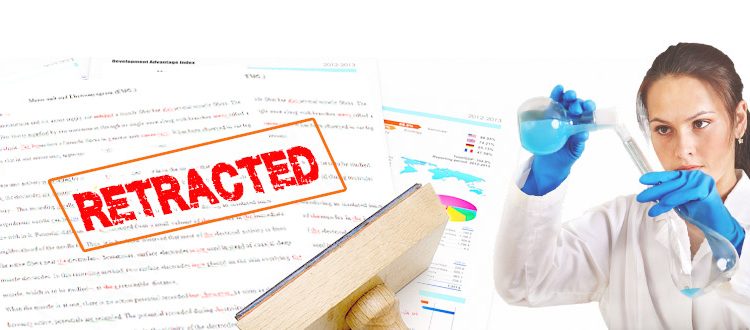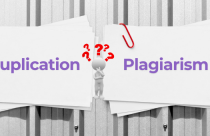How Do Article Retractions Affect Researchers?

We witness misconduct in every field of study and in all walks of life. Although the excuses may vary, humans tend to misbehave and sometimes even justify their misbehavior. Enago Academy has published several articles on scientific misconduct and its dire consequences (retraction, loss of credibility, job loss, etc.). Here, we build on those articles and discuss the consequences of misconduct in academic publishing. We also provide suggestions on what should be done when you observe misconduct at your workplace.
Scientific Misconduct
According to the U.S. Department of Health and Human Services, Office of Research Integrity (ORI), research misconduct is defined as follows:
“Fabrication, falsification, or plagiarism in proposing, performing, or reviewing research, or in reporting research results.” ORI defines each of these as follows:
- Fabrication: making up and reporting false data.
- Falsification: manipulating research by using different processes; misrepresenting data and results.
- Plagiarism: using others’ research work without citing it.
Honest mistakes also occur unknowingly; therefore, they are not considered in the realm of research misconduct. The most severe offenses are those that force experts to question the soundness of the scientific method(s) used. These are serious in nature. Authors need to carefully consider the penalties and stakes involved. All those involved in the research, even the publisher, are ultimately responsible for the integrity of the research paper.
How Retraction Affects Authors
The retraction of a paper involves a formal withdrawal of an already published article. This is a serious action and the last resort for dealing with misconduct. Before doing this, the journal adopts other measures to resolve the identified issues. Such measures include correcting unintentional typing mistakes or errors in analyses. The journal publisher does not subject the author to further disciplinary actions in all such cases.
With the advent of technology, it has become easier to identify misconduct. The number of retractions has therefore increased significantly in recent years. A retraction is damaging to everyone involved. According to an article from 2016, fraudulent research damages the reputation of not only the publishing journal, but also that of the author’s institution. All entities involved become responsible in some way for this serious overlook. The publishing industry also suffers and readers begin doubting the credibility of published research. Authors suffer a great deal from retractions because they lose peer recognition.
According to a study conducted by MIT and published in 2017, authors can experience a 10–20% decrease in citations after a formal retraction. Article retractions irreversibly damage the authors’ reputation. The scientific community begins doubting the integrity of the concerned research group. Journals avoid entertaining authors whose articles have been retracted on previous occasions. Even high-profile researchers find it difficult to publish again, after a retraction. Authors with retracted journal articles sometimes also lose their jobs. If the fraud committed is extremely serious, then they face legal repercussions and even imprisonment.
Reporting Misconduct
Special organizations have been set up to deal with research misconduct. ORI and the Committee on Publication Ethics (COPE) are two organizations that help the scientific community address unethical issues. They provide policies and guidelines to help identify and prevent research fraud. In addition, they provide advice to publishing industry personnel on managing issues related to academic misconduct.
So what should you do if you suspect misconduct? There are several measures that you could adopt. PubPeer is one avenue through which you can report cases of suspected misconduct. Users can discuss scientific research and peer reviewers can review published articles using this platform. PubPeer community discussions sometimes lead to article retractions. Retraction Watch (a blog launched in 2010) keeps an accurate record of retractions. If you suspect scientific misconduct of any kind, you should comment on this website and contact the journal editor regarding the offending paper. If the concerned journal confirms the scientific misconduct, it immediately issues a formal retraction notice.
For more information on reporting misconduct, please read the following Enago Academy articles:
- https://www.enago.com/academy/retractions-come-with-a-penalty
- https://www.enago.com/academy/how-should-you-report-scientific-misconduct
- https://www.enago.com/academy/when-should-a-paper-be-retracted
Let us review a hypothetical situation: Your laboratory colleague is working on a research project that involves using live animals. He/she does not treat the animals according to the ethical treatment standards established by your institutional ethics committee. Is this scientific misconduct? If so, what should you do? Please feel free to share your thoughts with us in the comments section below!











Yes it is a clear case of scientific misconduct. This misconduct has to be reported to the institution and necessary steps have to be taken to stop such an article .